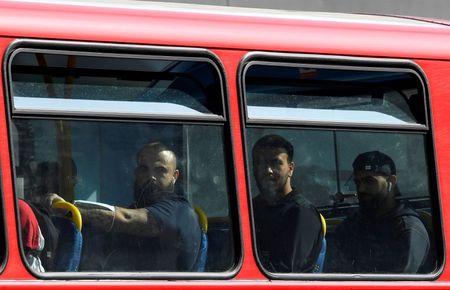Hundreds of bus routes face axe within weeks without emergency funding

Dozens of bus routes may have to be axed from the end of next month if emergency government funding support is not extended, councils and bus operators are warning.
Experts are warning of a 30 per cent reduction in current bus services when current funding support ends.
The Local Government Association, ADEPT, Urban Transport Group and Campaign for Better Transport have called on the Government to urgently extend its Bus Recovery Support Grant when it ends in March, saying that current passenger numbers were still way short of their pre pandemic levels.
The Bus Recovery Grant was introduced by the Department of Transport (DfT) last year, providing operators and local authorities with £255.5m in funding support due to sharp declines in passenger numbers affecting revenues.
However, the Government are yet to clarify if this emergency measure is due to be extended beyond the end of March, leading to concerns that a significant number of routes will no longer remain viable due to continuing low passenger numbers if it does end.
Latest DfT figures show that current bus passenger numbers outside of London are still 26 per cent lower than they were before the pandemic started, despite the lifting of all Covid-19 related restrictions on movement.
Commuters
Around 33 per cent of all bus journeys, pre-pandemic, were made for commuting purposes. However, with commuting levels predicted to continue to remain below March 2020 levels for the foreseeable future, it is unlikely that bus passenger numbers will bounce back quickly
Councils are calling on the Government to extend this funding support, which will enable operators and local authorities to ensure lifeline routes can stay open and plan for longer term improvements in bus networks. Bus passenger numbers cannot recover if services people were using have disappeared.
“This is crucial if the Government is to achieve its ambitions to improve and level up bus transport as part of its ‘Bus Back Better’ strategy announced by the Prime Minister, with a move to ‘London style’ transport networks in cities across the UK and investment in more routes,” LGA said in a statement.
In addition, Cllr David Renard, Transport spokesperson for the LGA, which represents 350 councils across England and Wales, said that ‘councils across the country are working with local operators to continue to deliver lifeline bus services despite the pressures of the pandemic.”
“Government funding has helped keep buses on the road, allowing operators to close the gap between the costs of providing local public transport and the reduced revenues from much lower numbers of passengers than normal,” Renard added.
“Passenger numbers have not returned to those seen before the pandemic and without continued support, it is clear that some routes will no longer be viable and will have to be reduced.”
Cllr David Renard, Transport spokesperson for the LGA
“This will have a devasting impact on people who rely on these services to get to work, visit family and access vital services, including doctors and affordable food shopping.”
“Saving bus services is good value for money for the Government and the National Bus Strategy as well as for the Treasury as bringing services and passengers back is harder and more expensive. The Bus Recovery Support Grant must be urgently extended beyond the end of March.”